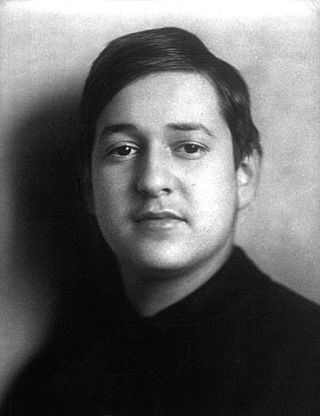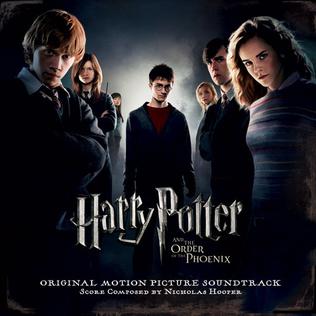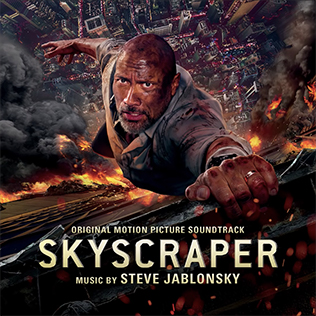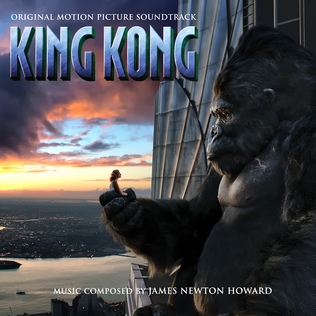
Maximilian Raoul Steiner was an Austrian composer and conductor who emigrated to America and became one of Hollywood's greatest musical composers.

A film score is original music written specifically to accompany a film. The score comprises a number of orchestral, instrumental, or choral pieces called cues, which are timed to begin and end at specific points during the film in order to enhance the dramatic narrative and the emotional impact of the scene in question. Scores are written by one or more composers under the guidance of or in collaboration with the film's director or producer and are then most often performed by an ensemble of musicians – usually including an orchestra or band, instrumental soloists, and choir or vocalists – known as playback singers – and recorded by a sound engineer. The term is less frequently applied to music written for media such as live theatre, television and radio programs, and video games, and said music is typically referred to as either the soundtrack or incidental music.

Erich Wolfgang Korngold was an Austrian composer and conductor, who fled Europe in the mid-1930s and later adopted US nationality. A child prodigy, he became one of the most important and influential composers in Hollywood history. He was a noted pianist and composer of classical music, along with music for Hollywood films, and the first composer of international stature to write Hollywood scores.
Alexander Mair Courage Jr. familiarly known as "Sandy" Courage, was an American orchestrator, arranger, and composer of music, primarily for television and film. He is best known as the composer of the theme music for the original Star Trek series.

A horror film score is music used and often specially written for films in the horror genre.
Photoplay music is incidental music, soundtrack music, and themes written specifically for the accompaniment of silent films.
Frederick Steiner was an American composer, conductor, orchestrator, film historian and arranger for television, radio and film. Steiner wrote the theme music for The Rocky and Bullwinkle Show and Perry Mason. While Alexander Courage composed the theme music for the original Star Trek TV series (TOS), Steiner's significant contributions to the franchise included composing more of the incidental music for TOS than any other composer, as well as scoring or conducting the music for 29 of the show's 79 episodes. Steiner also composed and orchestrated additional music for Star Trek: The Motion Picture (1979), was part of the team of composers for the 1985 film, The Color Purple, which received an Oscar nomination, and was an uncredited composer for Return of the Jedi.

Jurassic Park: Original Motion Picture Soundtrack is the film score to the 1993 Steven Spielberg film of the same name, composed and conducted by John Williams. Alexander Courage and John Neufeld served as orchestrators.

Harry Potter and the Order of the Phoenix (Original Motion Picture Soundtrack) is the soundtrack to the 2007 film of the same name, based on the book by J. K. Rowling. Nicholas Hooper composed the film's score, following John Williams, who scored the first three films, and Patrick Doyle, who did the fourth. Though new to the series, Hooper had worked with director David Yates before. The soundtrack was released 10 July 2007, the day before the film's release.
Music librarianship is the area of librarianship that pertains to music collections and their development, cataloging, preservation and maintenance, as well as reference issues connected with musical works and music literature. Music librarians often have degrees in both music and librarianship. Music librarians deal with standard librarianship duties such as cataloging and reference, which become more complicated when music scores and recordings are involved. Therefore, music librarians generally read music and have at least a basic understanding of both music theory and music history to aid in their duties.

Eugene Zador was a Hungarian and American composer.

Star Trek Into Darkness: Music from the Motion Picture is a soundtrack album for the 2013 film, Star Trek Into Darkness, composed by Michael Giacchino. The score was recorded over seven sessions at the Sony Scoring Stage in Culver City, California, on March 5–9 and April 2 and 3, 2013. It was performed by the Hollywood Studio Symphony in conjuncture with Page LA Studio Voices. The soundtrack album was released in physical form on May 21, 2013, through Varèse Sarabande, as the follow-up to the critically successful 2009 soundtrack album Star Trek.
Mysterioso Pizzicato, also known as The Villain or The Villain's Theme, is a piece of music whose earliest known publication was in 1914, when it appeared in an early collection of incidental photoplay music aimed at accompanists for silent films. The main motif, with minor variations, has become a well-known and widely used device, incorporated into various other musical works, and the scores of films, TV programmes and video games, as well as unnotated indications in film scripts.

Skyscraper – Original Motion Picture Soundtrack is the film score to the 2018 film of the same name, written and composed by Steve Jablonsky. The score was recorded at Abbey Road Studios in London with an orchestra conducted by Alastair King. Additional mixing was done at Arata Music Studios. The soundtrack was digitally released on July 13, 2018 by Milan Records with the physical soundtrack being released later on August 3, 2018.
Edward Benson Powell was an American arranger, orchestrator and composer, who served as Alfred Newman's musical lieutenant at 20th Century Fox film studios for over three decades. His contributions to the scores of 400 films culminated in the canon of widescreen Rodgers and Hammerstein musicals of the late 1950s, for which his arrangements, such as the extended "Carousel Waltz", continue to be revived in concerts and proms, as well as live-to-classic pictures. Powell was occasionally credited as Ed or without the middle initial, but his friends invariably called him Eddie.

King Kong (Original Motion Picture Soundtrack) is the soundtrack album to the epic adventure monster film King Kong, directed by Peter Jackson. The film's music was initially set to be composed by Howard Shore, who recorded several cues for the film but opted out due to creative differences with the director. James Newton Howard replaced him and work on the film's score began in late October and was completed in late November, an overall duration of under six weeks. Howard stated that the film "[w]as the hardest to compose" due to the hectic scoring schedule as the film was set for release on December 14, 2005.

Treasure Planet (An Original Walt Disney Records Soundtrack) is the soundtrack album to the 2002 animated science fiction action-adventure film Treasure Planet. The album features seventeen tracks – fifteen tracks from the score composed by James Newton Howard, and also featured two pop singles: "I'm Still Here" and "Always Know Where You Are". Walt Disney Records released the film's soundtrack album on November 19, 2002. The film's score received positive critical reception, with praise directed on Howard's composition.

Alice in Wonderland (An Original Walt Disney Records Soundtrack) is the score album to the 2010 film Alice in Wonderland directed by Tim Burton and produced by Walt Disney Pictures, which is a live-action adaptation of Disney's 1951 film and re-imagining of Lewis Carroll's works. The film's original score is composed by Danny Elfman, a regular collaborator of Burton.

Madagascar 3: Europe's Most Wanted is the soundtrack album to the 2012 film Madagascar 3: Europe's Most Wanted, the third instalment in the Madagascar franchise. The album was released on June 5, 2012 by Interscope Records, and featured original songs and score, produced by Hans Zimmer, who worked on the franchise's previous instalments. The album featured popular dance singles, accompanying few original songs written specially for the film.

Die Hard: Original Motion Picture Soundtrack is the soundtrack for John McTiernan's 1988 action film Die Hard starring Bruce Willis, that features an original score composed by Michael Kamen and incorporates diegetic music pieces. It has been critically acclaimed and assessed as one of Kamen's best works in film music and won him a BMI TV/Film Music Award for his work on the score.













